Rahul Gandhi: The Prince That Was Promised
To fully comprehend the Rahul Gandhi story with its infinite coming-of-age angle, one needs to understand the Luciferin concept of the Hell Loop, where one is stuck in a vortex of one’s guilt
One of the abiding myths of the Game of Thrones franchise is its own version of the Chosen One, AKA The Prince That Was Promised.
For the uninitiated, it was a Valerian prophecy that foretold that there would be a warrior of light who would lead the humans against the armies of the dead. Now the original prophecy in Valerian and the term Prince was gender neutral, so the Game of Thrones (and its sequel House of the Dragon) saw various contenders, including Daenerys Targaryen, Jon Snow, Aegon II, and even Stannis Baratheon, although the original prophecy believed that one leading the army would be a Targaryen.
While the identity of GoT’s Prince remains a mystery (at least to those not privy to George RR Martin’s thoughts), there’s no confusion among a major chunk of Congress supporters and BJP opponents about the identity of their saviour. Of course, they tend to vacillate to different people from time to time – from Mamata Banerjee to Uddhav Thackeray to Rakesh Tikait to Raj Thackeray to Shah Rukh Khan – but at the bottom of their hearts, they know it’s always Rahul Gandhi. In fact, even Reuters uses the term ‘prince’ to describe the Congress scion. And it’s the longest-loading coming-of-age tale in history (almost as long as this piece).
However, to fully comprehend the Rahul Gandhi story with its infinite coming-of-age angle, one needs to understand the Luciferin concept of the Hell Loop, where one is stuck in a vortex of one’s guilt for all eternity.
I recently learned the true meaning of the Hell Loop when I ordered some gear on a sporting apparel website. They couldn't deliver the order because of a technical glitch where the e-commerce company in charge of delivery couldn’t generate an OTP code, without which the delivery agent couldn’t hand over my package. The facade would continue every day for 16 days: The delivery agent would come to my door and ask if I received the OTP. When I replied in the negative, he’d go back without handing over the package. And he’d repeat it, like an infinite hell loop.
Only two groups would understand my predicament – Congress supporters and Manchester United fans. For Congress supporters, the idea that someone other than the Gandhis can lead the party is patently blasphemous. As Shashi Tharoor admitted many moons ago at a literature festival that if there were free and fair elections, a Gandhi (or, in his case, a more Gandhi loyalist) would always win. It’s a belief that still runs deep, not just among loyalists and family members, that a Gandhi is meant to rule Congress and the Congress is India’s default operating system.
The sentiment of believing in one’s self-proclaimed divinity was evident when Priyanka Gandhi Vadra compared the Gandhi family to the Pandavas, arguing that her family had “nurtured the democracy of this country with their blood.”


Of course, there’s nothing unique about Gandhis' hold on Congress. Barring the BJP (which is getting its early green shoots of nepotism) and the CPI(M), most parties in India are family fiefdoms. From DMK in the South to TMC in the East to Samajwadi Party in the North, most successful parties are ruled by families. In fact, one has to completely abjure one’s party’s political ideology to lose control of one’s party.
To quote the poet laureate Ramdas Athawale:
“Jeenho ne Uddhav Thackerayji ke rajneeti ke band kar diye dhande,
Unka naam hai Eknath Shinde.
Eknath Shinde or saare MLA hain Balasaheb Thackeray ke asli bande,
Abhi woh nahi rahein hai andhe.”
Anyhoo, returning to our own coming-age story, which has been running for decades. It started when I was an adolescent, and now that I have crossed my mid-30s – with accompanying back pain and slowing metabolism – I am still reading the exact same article. Every few years, we are assured that he has come of age. This would be followed up with a Dani Rojas-level of enthusiasm (Football is Life) before an inevitable disappointment once the electoral results came out.
From the UPA days, when editorials wondered if he was ready for the top job, to the NDA days, when editorials conjectured whether he was ready to be the main challenger. Sadly, the editorial’s enthusiasm was inversely proportional to the voters to exercise their franchise.
While it’s true that it’s unlikely that any single family will ever leave a mark on India the way the Gandhis have, it’s also true that with each passing generation, the descendants of the Nehru-Gandhi clan are following the Law of Diminishing Electoral Returns.
If we were to measure the number of seats that Congress won in Lok Sabha under each Nehru-Gandhi member, we get:
As the chart shows, the Gandhi clan's grasp on votes has diminished with every generation. While Nehru averaged 365.33 seats per election, by the time it came down to Rahul Gandhi three generations later, it was just 48, a fall of 86%. While the current generation of Gandhis might still think they are the default rulers of the country, the public sentiment clearly doesn’t agree.
A few days ago, Gandhi had said in a presser: “Unfortunately for you, I am an MP.” Few assumed that reality would change so soon. So, it was a stupendous shock to all – especially to western observers – when Rahul Gandhi was first convicted in a criminal defamation case and then disqualified from Parliament.



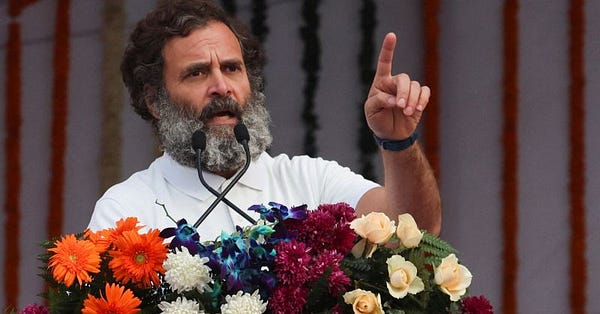

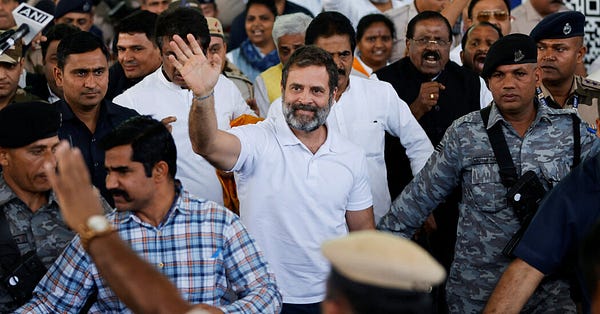


To fully sum up their disbelief, I present an imaginary NYT report, written by yours truly, much before the real one hit the press.
Mr. Gandhi, India's de-facto opposition leader, was recently sentenced to two years in prison over a frivolous charge highlighting the ever-decreasing space for dissent under this Hindu nationalist regime. Mr. Gandhi’s sentencing meant that India’s most well-known Opposition MP – the son, grandson, and great-grandson of former premiers – has been disqualified from Parliament, right after he highlighted Mr. Modi’s alleged closeness to beleaguered industry leader Mr. Gautam Adani.
Experts say, Mr. Gandhi, one of PM Narendra Modi's most vehement critics, is one of the last politicians to hold out against the hegemonic growth of Mr. Modi's BJP in a nation that is increasingly becoming more and more autocratic and cracks down on all "secular" voices. Every index of note – from V-Dem to the Freedom Index – finds India’s democratic credentials have plummeted since Mr. Modi won a landmark verdict in 2014. Mr. Modi - before his meteoric rise as Gujarat CM, where his regime stood aside during a pogrom, was a foot soldier of the RSS, an organisation that draws inspiration from fascists and Nazis.
Mr. Gandhi had recently, in a lecture at Cambridge, raised the issue of the RSS, a "fundamentalist" and "fascist" organisation which he alleged had "captured pretty much all of India's institutions". His sentencing clearly indicates that any view that doesn't align with Mr. Modi's Hindu nationalist agenda will be shut down with alacrity. India, which once prided itself on being a full democracy is looking more and more like an autocracy, not unlike Russia.
Incidentally, Mr. Putin counts Mr. Modi among his few allies, and India has refused to stop buying oil from Russia despite Moscow's invasion of Ukraine. Mr. Gandhi is from a dynasty more storied than the Kennedys as far as Indian politics is concerned. Mr. Gandhi's great-grandfather, grandmother, and father were all former premiers of India.
Mr. Gandhi's lack of electoral success showcases how Mr. Modi's BJP (with help from RSS) has steamrolled the old order and, with it, the idea of India that existed since its very independence when it chose to be a secular nation as opposed to Muslim-majority Pakistan. However, his expulsion – which can be overturned, if a higher court finds him not guilty – has sent chills down the backs of critics who argued that democracies like the USA and the UK are doing very little to call out Mr. Modi’s subjugation of his critics.
PS: You can read the actual NYT piece, which came out much later than my spoof here.
Coming back to the issue at hand, when I read about the criminal defamation case that had gotten Rahul Gandhi disqualified from Parliament as an MP, I couldn’t but help remember an old legal joke:
Lawyer: "Doctor, before you performed the autopsy, did you check for a pulse?"
Witness: "No."
Lawyer: "Did you check for blood pressure?"
Witness: "No."
Lawyer: "Did you check for breathing?"
Witness: "No."
Lawyer: "So, then it is possible that the patient was alive when you began the autopsy?"
Witness: "No."
Lawyer: "How can you be so sure, Doctor?"
Witness: "Because his brain was sitting on my desk in a jar."
Lawyer: "But could the patient have still been alive nevertheless?"
Witness: "Yes, it is possible that he could have been alive and practicing law somewhere."
Now I apologise to all my lawyer friends, particularly, since they are the ones who will be getting me out of jail when one of my pieces rubs someone important the wrong way.
The first funny thing about Rahul Gandhi’s disqualification is that it sounds like the silliest reason for a lawmaker to be expelled from the Parliament. Among them, I include an MLA (fittingly from Bihar) who forged Air India e-tickets to claim reimbursements, to the tune of Rs 23.71 lakhs. In fact, the Indian parliament is so diverse that among our MPs, we’ve got a terror-accused one and even a Khalistan-backing separatist linked to Indira Gandhi’s assassination.
Meanwhile, Gandhi’s disqualification was for the statement: “Nirav Modi, Lalit Modi, Narendra Modi … how come all thieves have the common surname (of) Modi?” As his lawyer points out in an interview, there’s no Modi community per se, which would make it a “loose and identifiable” group, and one couldn’t lodge a complaint.
The thing is that there’s something rather odd about the way the case was handled. Congress might be down and out electorally, but they have the brightest legal luminaries around who can bend the legal system at their will or knock on the apex court’s door at midnight. The received wisdom seems to be that there was a degree of lethargy in the way the situation was dealt with, and the alacrity with which it was dealt with was the complete antithesis of tareeq pe tareeq.
Apparently, they kept asking for the next date, and when they got a warning, they didn’t think the legal system would take action, echoing the thoughts of another Congressman who argued that the law of the land shouldn’t punish a Gandhi.

A senior lawyer Congress MP admitted as much, suggesting a level of laxity in the matter. Of course, Gandhi’s lawyer denies the claims about laxity and said that the legal trial was “taken very seriously and no leeway was sought”.
He even argues that Gandhi was willing to give in writing that he “respects all communities,” but the complainant wasn’t ready to accept that.
The second funny thing is, in 2013, Rahul Gandhi, erstwhile Congress Vice President, had torn up an ordinance to prevent immediate disqualification. Many commentators felt that the move was not only insouciantly churlish but also showed deep disrespect towards PM Manmohan Singh, who had even considered quitting, according to a book by Montek Singh Ahluwalia.
The most recent coming-of-age tale was the Bharat Jodo Yatra – whose tangible result so far has been to reduce Congress’ numbers in Parliament – the usual suspects were out announcing that this time, the coming-of-age was real, as opposed to the hitherto false coming-of-age. Walking that much – as someone who struggled to clock 10k steps a day – is no joke. Of course, there were some esoteric comments (I’ve killed Rahul Gandhi), but the general impression was that this was a new dawn.
Sadly, it was followed by a talk in Cambridge, which had the same pre-ordained gaffes, a speech that looks designed to strengthen the saffron hegemony in India and appeal to liberals based in the UK and the coasts in America who are more bothered about the Westphalian system than figuring out how to win in West UP.
There are things about his behaviour that baffles political observers including yours truly. It’s hard to understand why one would go abroad and claim democracy is dead in India, even though several non-BJP parties are in power in many parts of India (some of whom have Congress as an ally). That’s not to suggest that the government of the day doesn’t use central agencies to harass opponents, but then again, that’s quite ceteris paribus, a feature, not a bug of Indian democracy.
Perhaps, the most troubling bit – manna from heaven for BJP – was claiming that countries like the USA and the UK were “ignoring” the diminishing democratic credentials in the country. It sounded much like the NYT lament: “The operations of Amnesty International, Oxfam India, and other groups have been suspended for similar reasons. Yet Mr. Modi’s government faces little criticism from abroad. In geopolitical terms, everything seems to be going his way.”
What compounds the problems are the comments from members of the party.
It inevitably brings to the limelight the members – who you’d want the electorate to forget – defending you. Rahul’s comments on democracy saw defences from Sam “Hua to Hua” Pitroda and Digvijaya Singh. The only thing this defence achieves is bringing back in public memory that Sam Pitroda tried to suggest that bygones of the 1984 riots ought to be bygones. It reminds everyone that Digvijaya Singh – who tried to claim that 26/11 was an RSS conspiracy – is still part of Congress. The same Digvijaya Singh, who lost to a terror-accused by a landslide, and needs Jairam Ramesh to stop him from saying things on camera. And the first person spotted during the “Satyagraha” to protest the disqualification was Jagdish Tytler.
Now the optimists will hope that this gives Congress a chance to break the Infinite Hell Loop. Indians love a martyr, and Gandhi can certainly become one now. His grandmother was disqualified and went to jail as well. But Indira Gandhi is, in every sense, a sui generis politician whose good matched her bad. From leaving Nixon blubbering like an incel to breaking Pakistan into two to calling an Emergency to stay in power, Indira Gandhi was a leader like no other.
Sadly, her grandson doesn’t seem to show the same level of dedication to the craft of politics or even the same seriousness. Many of Gandhi’s comments have been rather derelict, sounding more like the utterances of editors running bouquet websites who imagine that Amit Malviya is the Supreme Chancellor than a serious person who hopes to be considered a Prime Ministerial candidate.
The thing is, when David is up against Goliath, David needs to mind his Ps and Qs. And Rahul has not been minding his Ps and Qs at all. In 2019, he had to apologise to the Supreme Court for attributing the statements to it and render an unconditional apology about comments that he claimed was made in the “heat of political campaigning”.
He was also accused of attributing the murder of MK Gandhi to RSS, a claim he had to recant.
Earlier, when the UPA was in power, he told US Ambassador to India Timothy Roemer that rather than Islamic terrorist groups like Laskar-e-Taiba, the bigger threat came from the growth of radicalised Hindu groups, which create religious tensions and political confrontations with the Muslim community.
All this explains Barack Obama’s report card on him: “Rahul Gandhi has a nervous, unformed quality about him, as if he were a student who'd done the coursework and was eager to impress the teacher but deep down lacked either the aptitude or the passion to master the subject.”
It took a former Congressman, Anil Anthony, the son of AK Anthony, who summed up Congress’ current predicament when he wrote: “The plight of INC India from 2014, especially post-2017 is a sad case study. The party ideally should stop focusing on the gaffes and bloopers of an individual and work on the issues of the country. Else, it won’t exist beyond 2024.”
The fact is that Congress is only at its most combative when the Gandhis are threatened. Like the time Republic's editor-in-chief, Arnab Goswami accused Sonia Gandhi of being silent on the Palghar lynching case, which led to FIRs across the country against him. Perhaps they still blame him for that infamous interview promoting “women’s empowerment”.
It would appear that people who love to label others as “Bhakts” are at the forefront when it comes to bhakti.
This confusion often reflects in the Congress electoral campaigns. The one in 2019, to borrow a phrase from Shashi Tharoor, was a farrago of disjointed ideas ranging from Rafale bashing to flaunting one’s janeu to proclaiming that one was a Shiv Bhakt. It’s all a confusing potpourri, especially against opponents whose religiosity, to quote from Varun Grover, is their core competency.
In fact, the failure to promote NYAY – the Universal Basic Income program, which failed to reach the masses and remained confined to editorials – can be summed up by the fact that some bright chap put up an NYAY hoarding in Delhi’s Khan Market.
In fact, some say that money to promote NYAY – the plan to give Rs 6000 to the bottom 20% - was pocketed by middlemen, a horrific retelling of Rajiv Gandhi’s lament about funds not reaching the last person.
The Congress’ 2024 campaign seems equally clueless.
To beat the BJP, Congress will need to present an alternative, much like Modi did in 2014. While some of the things politicians tend to claim while campaigning were far-fetched, it was a vision voters bought into. Despite hits and misses, BJP has already fulfilled two of its fundamental raison d’etre claims – the abrogation of Article 370 and getting a Ram Mandir built in Ayodhya. The third, a Uniform Civil Code, might be in the offing.
Meanwhile, all the Congress has managed are John Lennon-meets-Miss Universe promises, which sound much better as an Instagram caption rather than on a serious political party manifesto.
There’s no alternative economic vision, no coherent foreign or social policy. Beyond criticising Modi, Congress offers no alternative. For example, Gandhi says that External Affairs Minister Jaishankar – whose star has been rising in recent months – doesn’t understand China, yet fails to explain what he’d do differently. The same goes for economic or social policies. When Rahul accuses a businessman, close to PM Modi, of graft, he needs to explain why the common man should care. Most folks aren’t financial experts, and they'd rather prefer Bigg Boss to Shark Tank.
Not only are businessmen no longer considered villains like they were in the socialist era, but there’s also genuine gladness about how corporates have improved lives. For example, it might be fashionable to attack a company for creating a monopoly, but anyone who remembers pre-Jio data rates knows that we are much better off now. And esoteric debates about net neutrality matter little to a cabbie who can see his daughter on video chat every day, or the construction worker who can vibe to Bhojpuri music on his phone after a long hard day.
More so, while Rahul Gandhi has been consistent in attacking BJP on the Adani issue, he is failed by the lack of coherent tag team partners within the Congress. For the longest time, BJP was the country’s default opposition party, during which it could call on oratorial stalwarts like Atal Bihari Vajpayee, LK Advani, Pramod Mahajan, Sushma Swaraj, or Arun Jaitley to raise hell in Parliament, or in the court of public opinion.
On the other hand, Congress, for some reason, chose Adhir Ranjan Chowdhury – a spirited MP who sadly lacks proficiency in both English and Hindi – to be their leader in Lok Sabha.
Meanwhile, gifted orators like Manish Tewari or Shashi Tharoor are never at the forefront to fight the battles in the Parliament, perhaps because they were a member of the G23 – a group of Congress leaders, whose desire for change was crushed with an iron fist. Or maybe because they will “outshine” the Crown Prince. Even Sanjay Jha, who was an remarkably resistent firefighter during the fag end of the UPA II era, was cast out like Lucifer for the blasphemous charge of exhibiting free will.
Similarly, Shashi Tharoor’s – perhaps the most well-known Congressman in India and the world – attemtpt to become the Party President was scuttled in favour of the less charismatic Mallikarjun Kharge. In fact, this plan was thwarted with such alacrity that one didn’t even have any time to reach out to a dictionary to decipher what his manifesto said. Let it not be forgotten, that the Congress high command has always felt that Tharoor was a tad too loquacious for his own good.
This has meant that the party has never quite managed to corner the government for its perceived failures – from the lockdown to GST to demonetization – at least not enough to cause an electoral reversal.
But since the Congress – at least the members calling the shots – has decided that it doesn’t exist beyond the Gandhis, the only way for the party’s electoral tides to improve would be for the Gandhis to improve.
Sadly, the press conference that followed his disqualification doesn’t give hope that things will change as we encountered many of the Rahulisms we’ve come to expect.
There was the mocking of a Congress beat reporter for asking a question and accusing him of being a BJP agent followed by a petulant self-congratulatory: “Hawa nikal gaya naa... (Look I punctured him like a balloon).”

There was an accusation that a shady entity had placed Rs 20,000 crore in Adani’s shell companies, a claim which seems to refer to the withdrawn FPO, which tried to raise that amount where the identity of those putting in money is known. He claimed that he wouldn’t apologise because his surname wasn’t Savarkar, even though he apologised to the Supreme Court on record. Not to mention that the party hopes to perform well in Maharashtra in 2024, where Savarkar as an icon is on par with, if not above, MK Gandhi.
All this brings us back to the crux of the matter. No matter how autocratic the friends of Congress might imagine India to be, there is no denying that India is a land that has always held free and fair elections. Even Indira had to bear the voter’s brunt after the Emergency. And a country where there never has been any trouble with the transfer of power, a claim that the mighty United States can no longer make after the events that took place at Capitol Hill.
Troublingly, the latest iteration of the party seems to believe that it doesn’t have to convince voters in India to vote for them but to get favourable noises from allies outside, which goes against the very grain of a self-sufficient democracy.
Democracy boils down to one simple question for the voter: What’s in it for me? Or if you prefer something fancy, think of the gardener’s lament to Pangloss in Candide, ou l'Optimisme after the latter’s riveting speech: “That’s all well said and done but I now have to tend to my garden.”
Voters essentially have the same conundrum. Who will help us tend to our garden? For now, the best at that is the Modi regime. Millions are getting free rations to tide over the post-Covid jobless. For the believers, there’s the Ayodhya Temple and beyond that, the favourite chant of the base: “Ayodhya to jhaaki hai, Kashi-Mathura baaki hai.” There are voters who have never had electricity, mobiles, bank accounts, or toilets before this current regime. Elections aren’t fought in media headlines – Indian or global – they are fought on the ground. The trajectory taken by Bharat Jodo suggests that it wasn’t really a campaign to gather votes.
Lest we forget, there’s no Prince That Was Promised in real life, just the leader chosen by voters exercising their franchise. And for the foreseeable future that candidate is Narendra Modi. Going abroad and whining about that, only helps the current regime and is unlikely to change the voter’s minds.
Edited by Alekhya Boora.





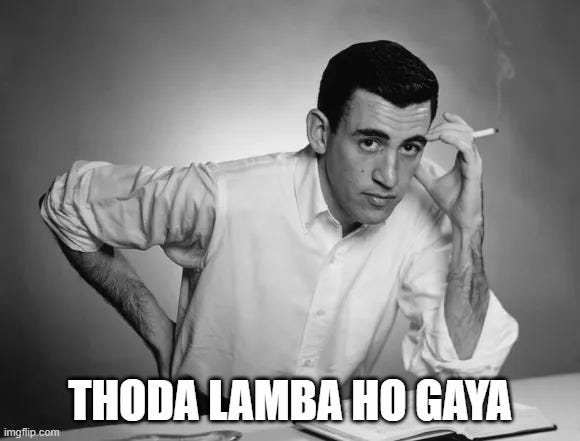




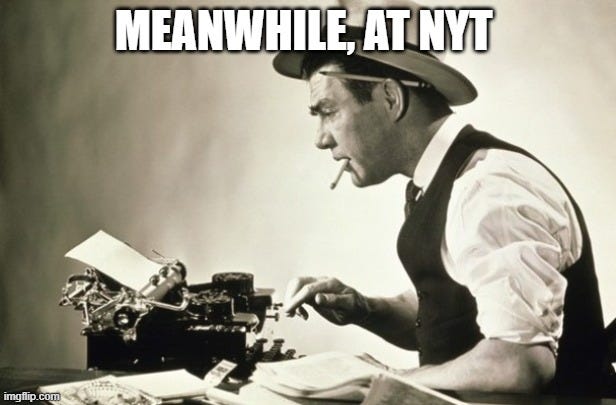
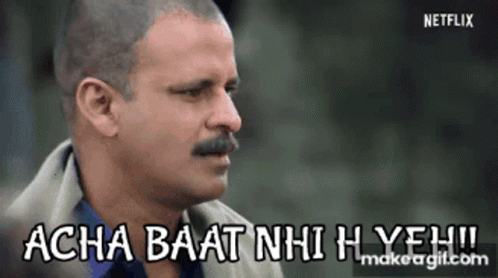
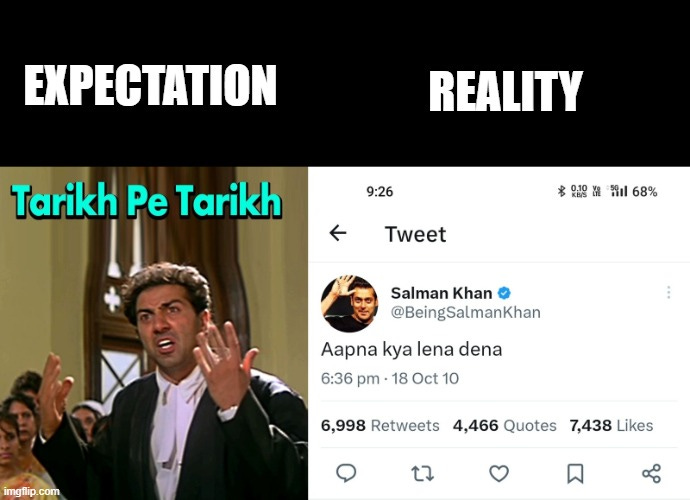
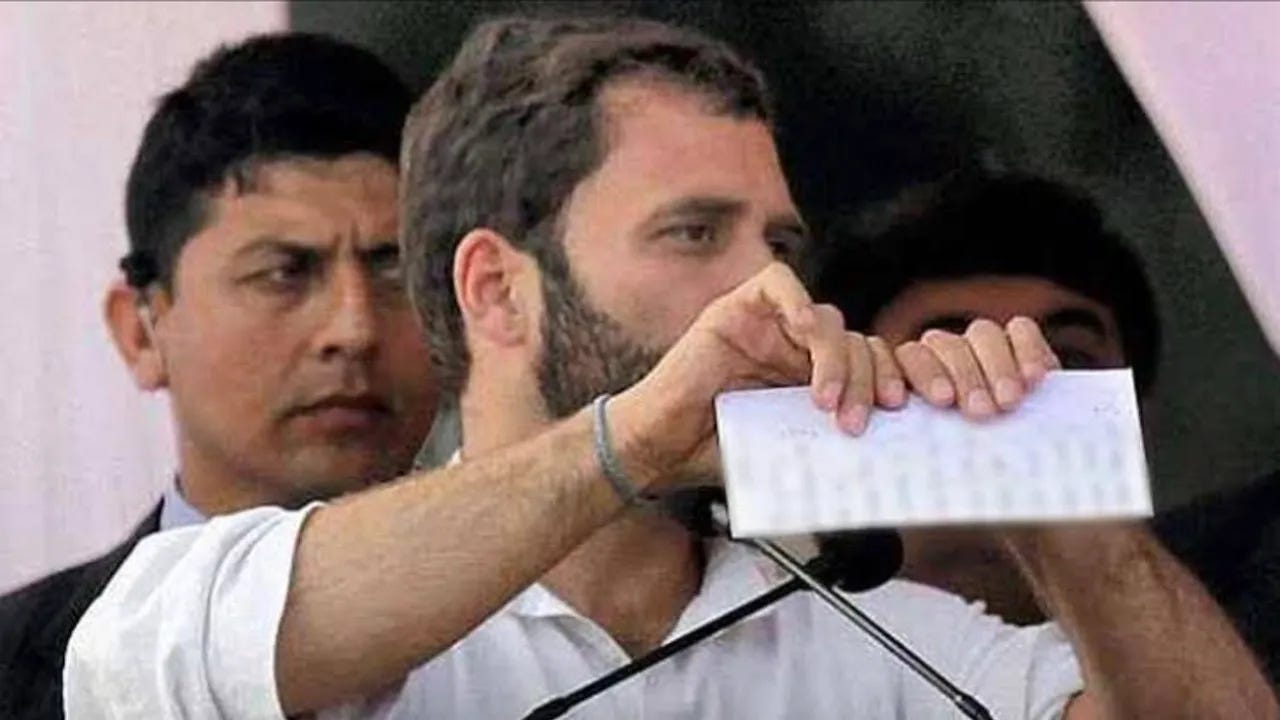

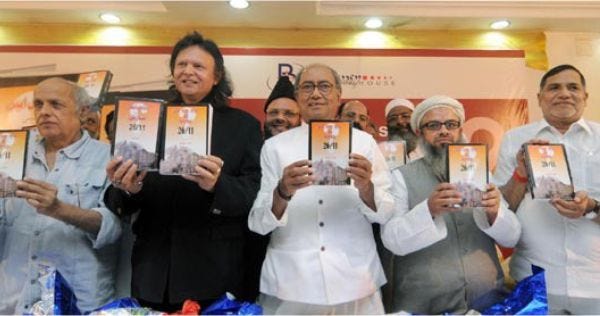
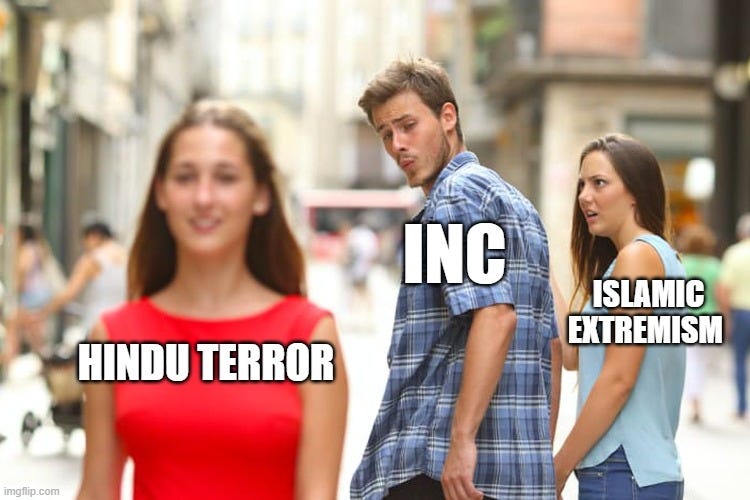
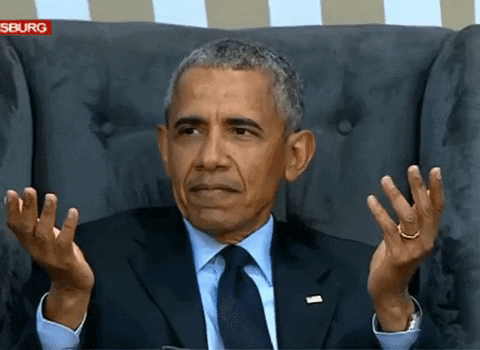
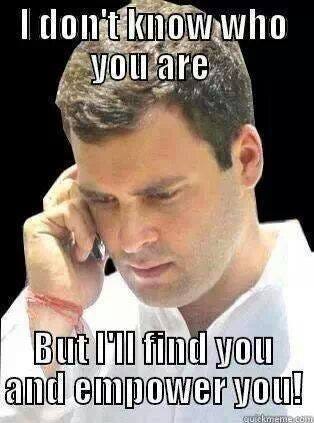

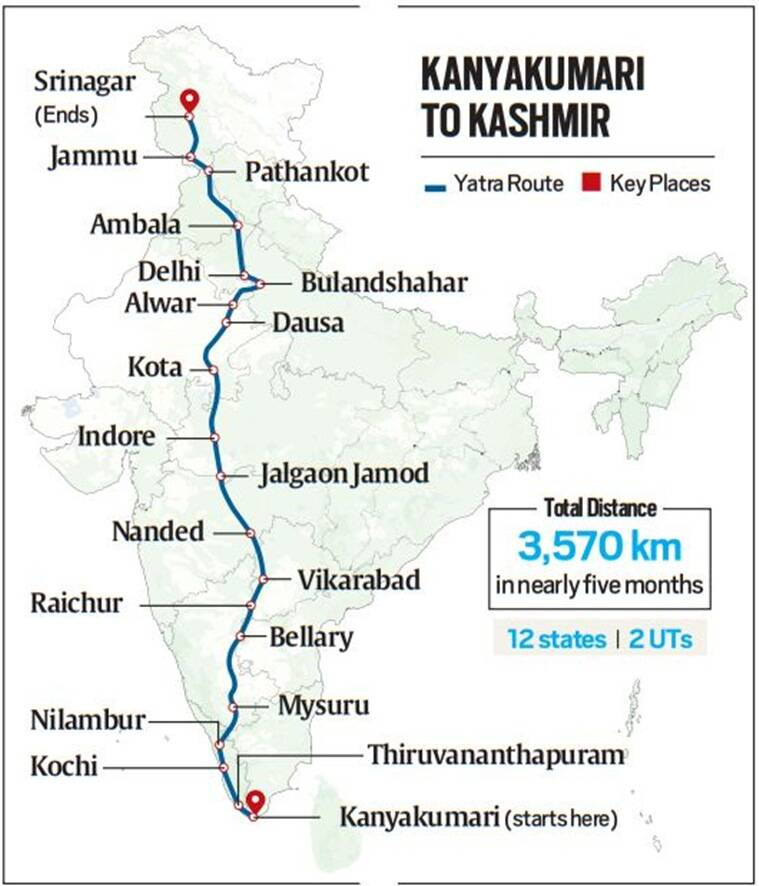
You might want to regularly write the NYT take on any major event in India, BEFORE the NYT writes it. A fun thread in your substack.
This is a very well written and a very well researched article wherein the author, Nemo, with great skill, brings together his vast journalistic experience and humorous yet skillful writing to give the common man, i.e. someone like me, a realistic and almost clairvoyant snapshot of the Indian political landscape of the now.